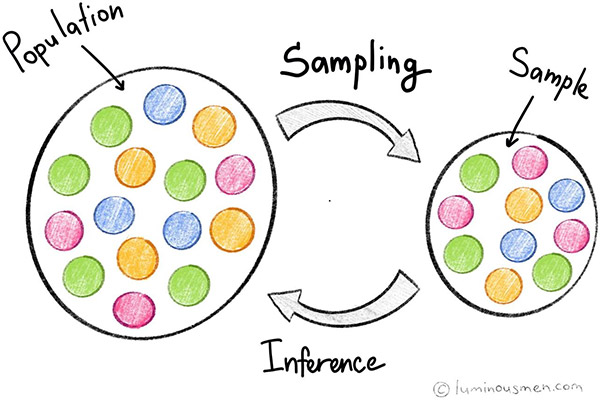Sampling Challenges: What Does Data Tell You?
Today, it is nearly impossible to catch up on the news without reading about the impact of COVID-19 on health and business. For good or bad, many of us are tracking the global statistics to settle our minds during these uncertain times. Some of us, or at least myself, try to gain a small sense of control by following the changes in infection rates. However, the additional data I look at, the more questions become unanswered.
What should the data tell us?
The global infection rates are only valuable if we can trust that the tests and samples are relatively accurate. How do we know that the data is accurate to the population when the symptoms are not evident, and many governments are discouraging universal testing? Additionally, how can we compare data ‘apples to apples’ when each nation has set different parameters for sampling and testing?
Some journals have pointed to some countries that may share a lack of information, leading to a possible misleading picture of the health situation. Weak data not only discourages proper actions on a local or country level but can also influence the lack of response from other observing nations.
How are decisions influenced based on data that may or may not reflect the actual population?
More data collection is, in theory, is more representative of the population. South Korea is an excellent example of a country trying to address that question. The idea is that more sampling data helps politicians and scientists to understand the current situation. It provides the government with critical information to make better-informed decisions to help mitigate the spread of COVID-19.
While many scientists suggest the endpoint is still unknown, we can watch this process and evaluate what constitutes useful sampling data. The representative sampling questions we are asking about COVID-19 can also transfer to questions regarding better sampling and data collection ideas for food safety. How do we know the sample data is accurate or representative of the entire production process?
We know this ‘Corona time’ is going to end at some point. We pull away many lessons from this period from hygiene practices, patience, humility, as well as the importance of reliable data. We can make the best out of a challenging time to develop new perspectives and best practices. How can more considerable attention to sampling and testing help us to develop better sampling plans?
Learn more about representative data by watching this video on our YouTube Channel: Brett Knows: Representative Sampling
Anne Bigalke is the VP of International Markets at QualiTru Sampling Systems. Find out a little more about her on QualiTru’s Our Team page. Visit Our Blog for other articles Anne has produced.




